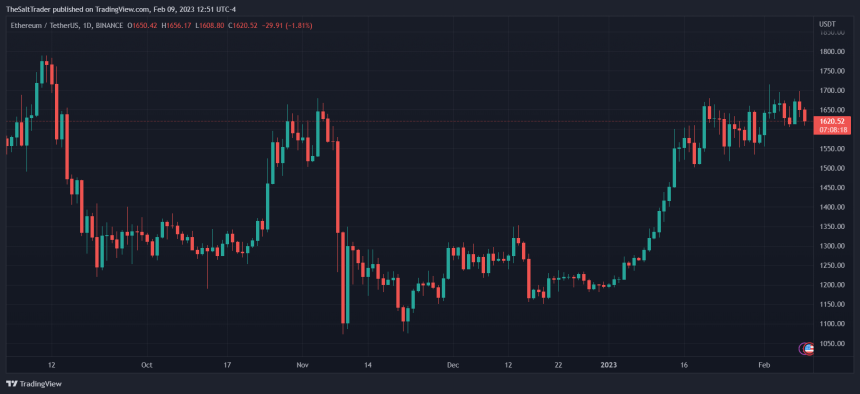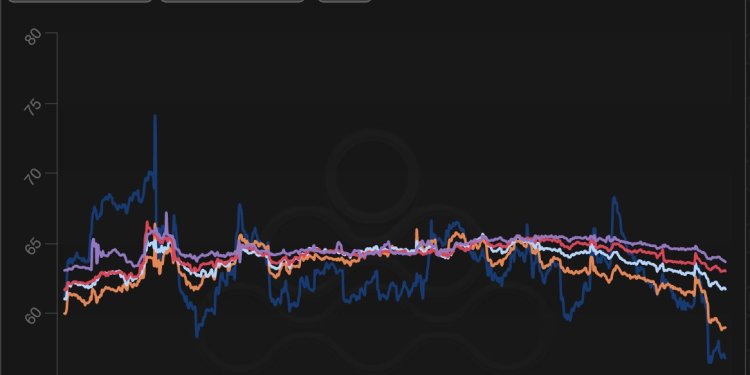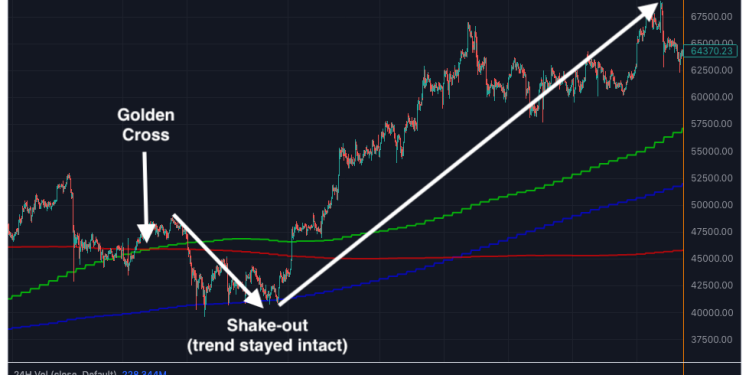Reason to trust

How Our News is Made
Strict editorial policy that focuses on accuracy, relevance, and impartiality
Ad discliamer
Morbi pretium leo et nisl aliquam mollis. Quisque arcu lorem, ultricies quis pellentesque nec, ullamcorper eu odio.
Ethereum has been retracing on its previous weeks’ profits and seems ready to re-test support levels below its current price. The crypto market has seen significant gains as the macroeconomic landscape shows signs of improvement, but the crypto winter is not in the review mirror yet.
As of this writing, Ethereum (ETH) trades at $1,630 with a 1% loss in the last 24 hours. Over the previous week, the cryptocurrency recorded sideways price action outperforming other assets in the top 10, such as Bitcoin (BTC) and XRP, which recorded a 5% and 3% loss, respectively.

One Macro Event, Two Opportunities For Ethereum
Per a report from investment firm Blofin, the two largest cryptos by market capitalization, Bitcoin and Ethereum, have seen relatively slow price action over the past 24 hours. However, this status quo could change in the coming days.
At least in the crypto options sector, there has been a decline in Implied Volatility (IV), which measures expectations of future price movement. This metric is approaching its January 2023 level, suggesting the IV is bottoming and could spike again.
As seen in the chart below, IV declined after a significant increase in early January. At that time, the price of Ethereum and other cryptocurrencies appreciated and trended to the upside.

In the current context, Blofin notes less interest from Market Makers to defend ETH’s current levels. These investors might hedge against the spike in IV and potential downside price action from macroeconomic events. The firm noted:
Ether’s situation is not very optimistic. (…) MMs will not tend to buy in spots hedging against the gamma exposure once the price collapses before the weekend.
In other words, large investors could be waiting for a clearer view of the macroeconomic landscape. Next week, the U.S. will publish its Consumer Price Index (CPI), a proxy to gauge inflation in the dollar.
If the metric beats expectations, with recent data pointing towards a strong U.S. labor market, the Federal Reserve (Fed) could exercise more pressure on global markets, including digital assets. These measures could lead Ethereum to re-test its yearly lows.
In a separate report from the on-chain firm Jarvis Labs, an analyst points towards the clues hinting at a change in the market regime. Supported by a decline in the U.S. dollar and a historical bullish signal, Bitcoin’s (BTC) golden cross of its 50-day moving average above the 200-day moving average.

Whenever these moving averages intertwine, the crypto market enters a new bull run amid a spike in volatility and some price declines in the short term. Thus, if ETH crashes below $1,600, long-term holders could take advantage of a potential opportunity.























